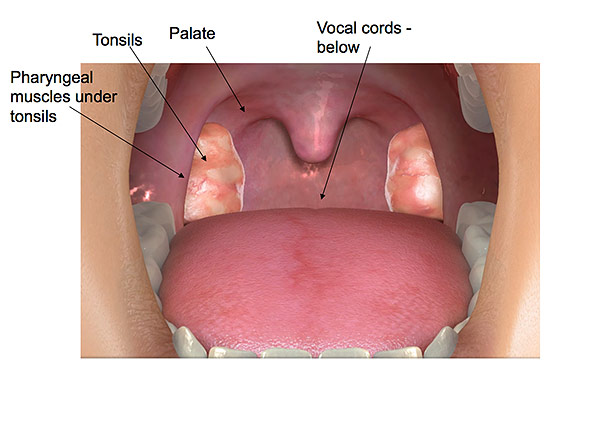- Question: How do the ingredients in e-cigarettes and vaporizers affect respiratory health? - August 16, 2019
- Bad Technique and Vocal Injury - January 9, 2019
- Is Edible Marijuana Dangerous for the Voice? Myths Dispelled - December 18, 2018
- Surprise! You have a hemorrhage - January 31, 2018
- Graves’ Disease: Treatment Overview - September 25, 2017
- Adele and the Stigma of Vocal Injury - July 11, 2017
- Vocal Curbside Consult: How does the thyroid affect the voice? - May 16, 2017
- Vocal Curbside Consult: How do hormones affect the voice? - May 3, 2017
- Vocal Curbside Consult: How do emotion and stress affect the voice? - April 17, 2017
- Vocal Curbside Consult: Vocal Recovery After Illness - April 7, 2017
Micah Johnson stunned a nation when he auditioned for American Idol. But it wasn’t simply his vocals that engaged the audience; it was his back story. According to Johnson, a tonsillectomy left him with a damaged nerve and a severe speech impediment. This impediment vanishes completely during singing, though. How is this possible?
What is a tonsillectomy?
A tonsillectomy is a surgical procedure that involves removing the tonsils. The reasons to have a tonsillectomy are:
- frequent infections of the tonsils (not simply frequent colds)
- culture proven Strep infection of the tonsils
- snoring/sleep problems related to large tonsils
- history of complication from tonsillitis (abscess)
- one larger tonsil
- tonsil stones (tonsilloliths) that are painful or recurrent
What are the complications of tonsillectomy?
Tonsillectomy is generally a safe procedure. The most significant risk may occur in the first 1-2 weeks after surgery, bleeding of the tonsil bed.
The tonsils sit on top of the pharynx (throat) muscles. When they are removed, it exposes the throat muscles. This is unlike any other surgery, because other surgeries involve closing the wound to protect delicate tissues that are not typically exposed to air. Because throat muscles stay exposed after tonsillectomy, they may bleed.
Therefore, the most significant risk of tonsillectomy is bleeding. However, this is most often easily controlled in the doctor’s office, without a need for repeat surgery.
What are the risks of tonsillectomy in singers?
Because the tonsils sit on pharynx (throat) muscles, which are involved in palate elevation and configuration of the vocal tract, tonsillectomy can affect the control of these muscles. Further, some techniques result in significant scarring of the pharynx muscles, making movement of the vocal tract difficult, altering the resonance of the singer’s sound. The Singer’s Tonsillectomy is a specialized technique for tonsil removal and rehabilitation that minimizes these risks.
Complications, such as severe palate scarring, may result in leakage of air into the nose, but this is exceedingly rare.
Finally, any singer who undergoes any surgery should be cautious about the risks of intubation, which can directly damage the vocal cords themselves or weaken the vocal nerves.
What could have happened to Micah Johnson?
It is impossible, watching a video alone, to understand all the details of his case.
Severe palatal scarring from tonsillectomy can make it so that air leaks through your nose when you are trying to speak. Though the details aren’t known in Johnson’s case, it is possible extremely large tonsils puts him at risk for this scarring.
Palatal scarring may result in nasal air leakage during speech. However, in his case, nasal air leakage may be corrected during high intensity airflow maneuvers that occur during belting or singing. He may have difficulty with different songs, as well, that rely more on sounds that involve palate movement. When he is speaking, Johnson may be trying to correct this nasal air leakage, resulting in muscular contortions and inappropriate and inadequate compensation. He may still be in a healing process, wherein his speaking voice will recover. The closest nerves to the tonsils are those that control taste, not speech or articulation, making permanent nerve injury an unlikely culprit. A normal singing voice certainly suggests there is hope of a total speech recovery.
The emotional power of singing may also be contributing. There are patients who have no voice, but who are able to laugh audibly and cough. Involuntary or emotive tasks are normal. It is possible that singing, being emotive, frees muscles that are being restricted when he is focused and attentive to talking. We see this time and again, when stutterer Lazaro Arbos sang stutter-free. It was even put into a storyline in the first season of Glee, where the character, Tina, stuttered unless she was singing. Speaking is a focused task that often emphasizes speech problems; singing is a freeing task that often escapes speech problems. Emotion is driving singing; function is driving speaking.
Actually, a known technique of voice therapy was perhaps inadvertently cited by Keith Urban himself: “Just sing all the time.” Training the speaking voice to function like his singing voice may, indeed, free him of his speech difficulties.
Read patient stories about Dr. Reena Gupta from The Division of Voice at the Osborne Head and Neck Institute.
To learn more about voice care and voice-related issues, click here.






